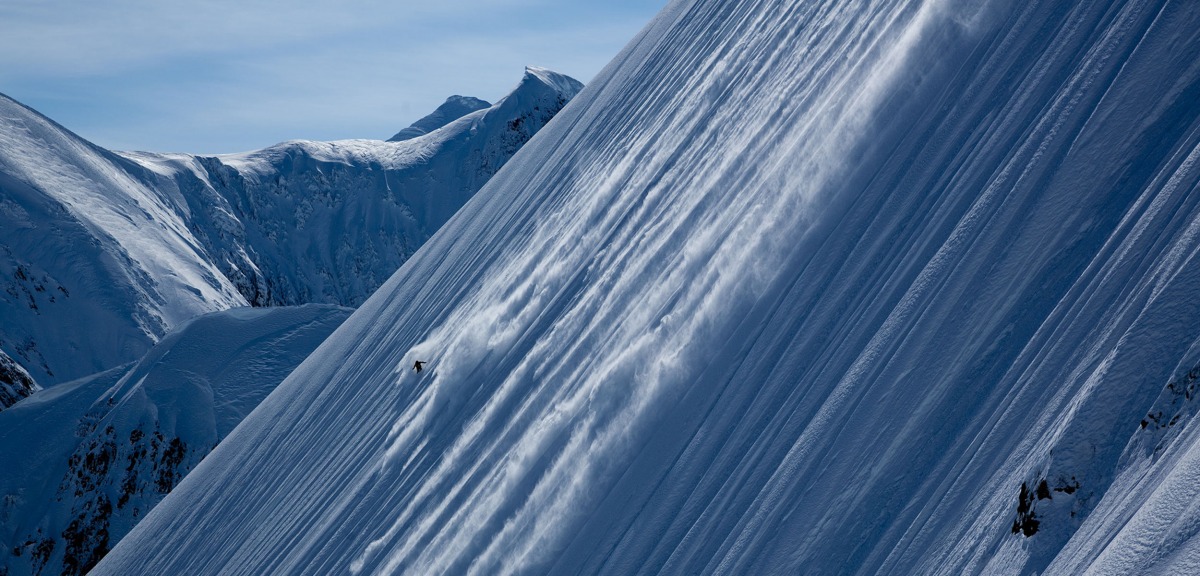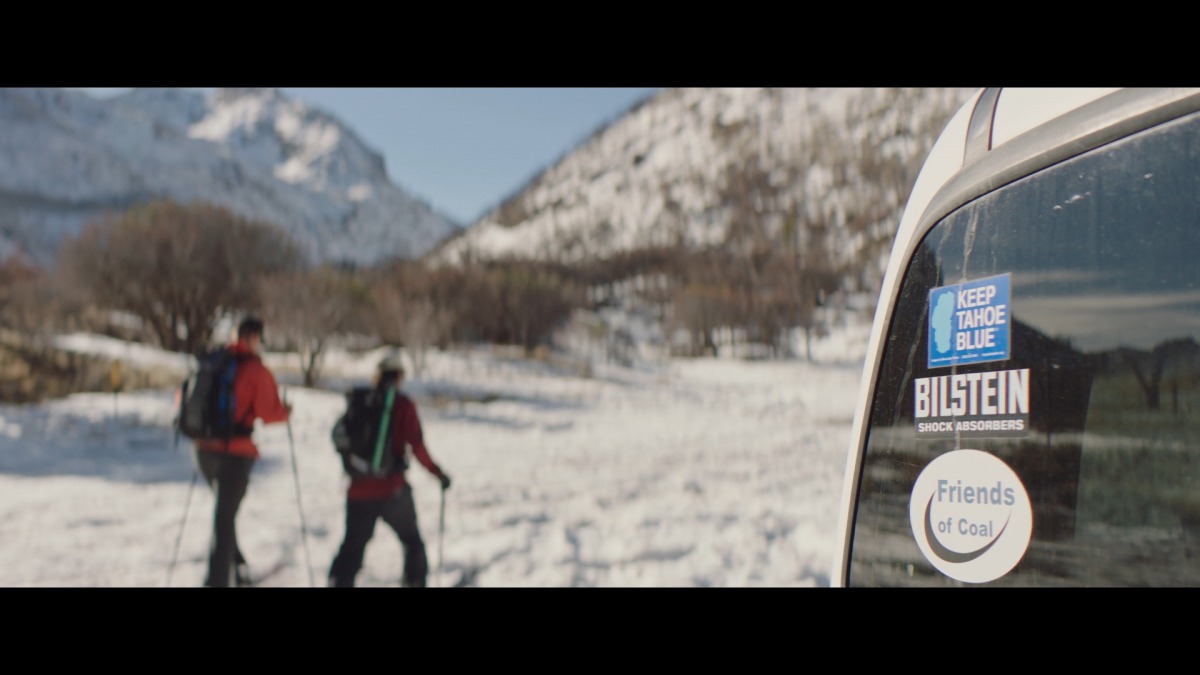
Jeremy Jones is known for riding big lines, but his latest film stays closer to home. Photo: Jeff Curley
Purple Mountains is not a typical ski film. That’s made clear in the opening scenes, a montage of TV clips that summarize the evolution of environmental politics over the past 50 years. It is a ski film though, in that skiing, splitboarding and the celebration of snow are key elements of its central message. But showy boastfulness of ski and splitboard porn is largely diffused, interspersed instead with something more public-facing: the power of conversation to break down divisions and establish common ground across political parties.
The film, produced by TGR and free to watch (see below), was released in September. It follows the journey of Jeremy Jones, extreme snowboarder turned climate activist and founder of the climate change advocacy group, Protect Our Winters (POW), as he works to understand America’s current political divisiveness around environmental issues.
Last week, Jeremy chatted with Doug and Randy for the latest episode of the Totally Deep Podcast. The trio discuss the evolution of Jones Boards, challenges of making sustainable gear, and the importance of the messages in Purple Mountains, especially during the upcoming election.
The film
Purple Mountains less about skiing or splitboarding than it is about shared values. It is political, but not, as Jeremy makes clear throughout, partisan. Ten minutes into the film, he confronts criticisms frequently lobbed at the environmentalist Left and particularly POW. An unidentified caller to POW is recorded stating the following:
“I’d like to see if you have any calluses on your hands. I bet most of you came from a lot of money and you love to ski, which is something you know, people with money can do a lot of. And the working Americans like myself, which you have nothing to do with and don’t understand, and don’t respect, they vote and your bullsh*t climate agenda is totally wrong. People like you can ski and play in the snow while the rest of us work our asses off. So that’s why your organization is not going to be around in about 20 years.”
This openness to facing criticism toward ‘greenie’ politics and attempting to dismantle it sets Purple Mountains apart from typical environmental films also. It is a quest to see whether Americans are as divided on the environment as media makes us out to be, and why that division exists. Scenes of Jeremy carving down snowy faces are balanced by his conversations with climate naysayers, scientists and advocates.

Purple Mountains steps away from the typical ski film narrative to confront divisions — and shared values — in current environmental politics. Photo: Courtesy of Purple Mountains
The most thought provoking moments occur in the town of Elko, Nevada. On the edge of the Ruby Mountains, Elko represents the intersection of natural abundance and conservative ideals around extraction. The conversations Jeremy has with residents there — including a rancher who skis from his doorstep, a mine manager, a hunting guide, and a hard rock miner who shows Jeremy around a stunning couloir zone in the Rubies — play out on the basis of curiosity, rather than judgement or division. In the end, we get glimmers of shared values and understanding.
At its core, Purple Mountains seeks to break down the divisions between conservative and liberal Americans, and to highlight that protecting snowpack — and consequently the water cycles that feed irrigation, public water works, healthy ecosystems and more — is fundamentally a human, not partisan, issue. As we head into one of the most contentious elections in recent history, the film offers at least a little bit of rare, honest hope.
Like what you are hearing? Leave a comment below, tell a friend or two, and review us on iTunes.
Manasseh Franklin is a writer, editor and big fan of walking uphill. She has an MFA in creative nonfiction and environment and natural resources from the University of Wyoming and especially enjoys writing about glaciers. Find her other work in Alpinist, Adventure Journal, Rock and Ice, Aspen Sojourner, AFAR, Trail Runner and Western Confluence.
